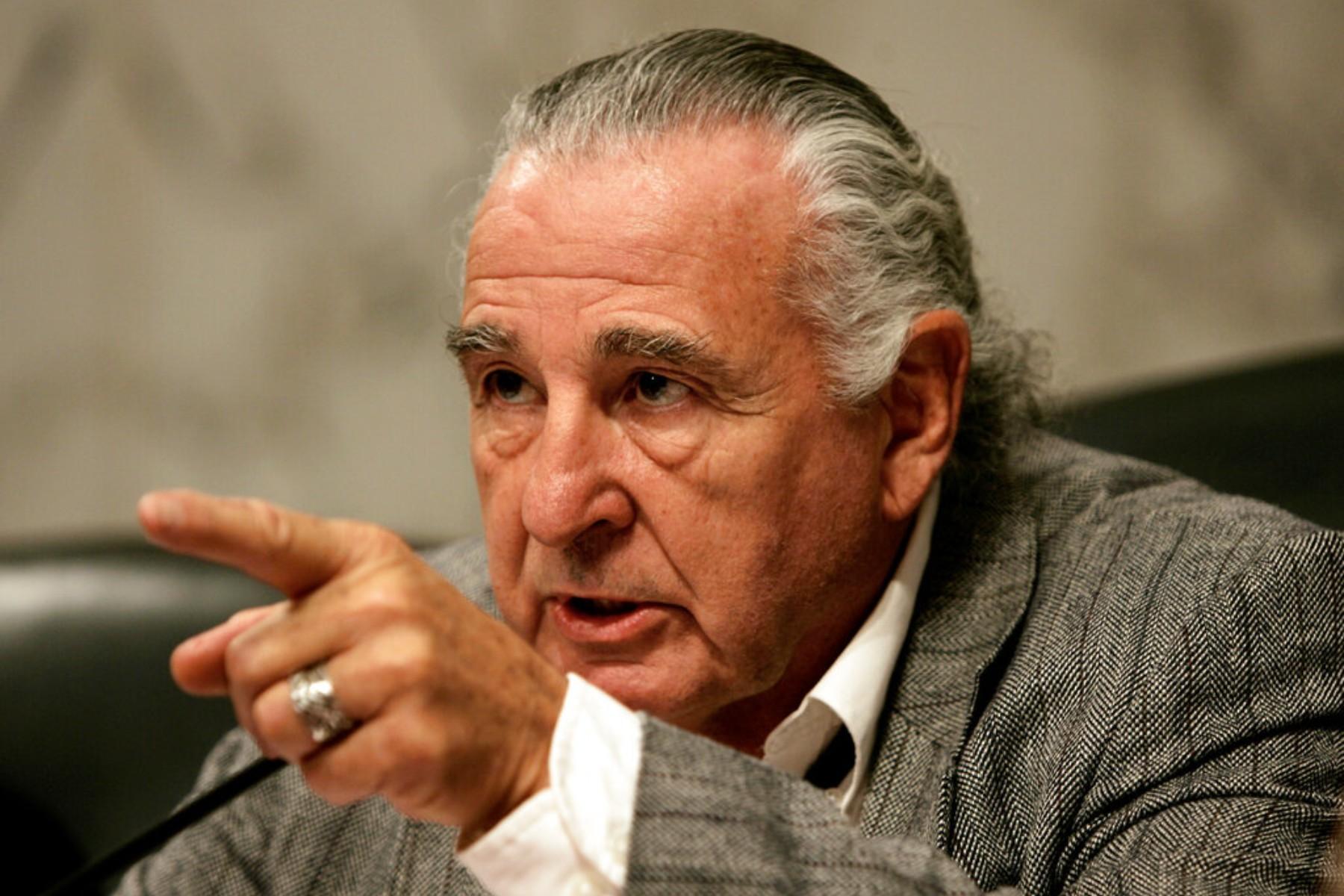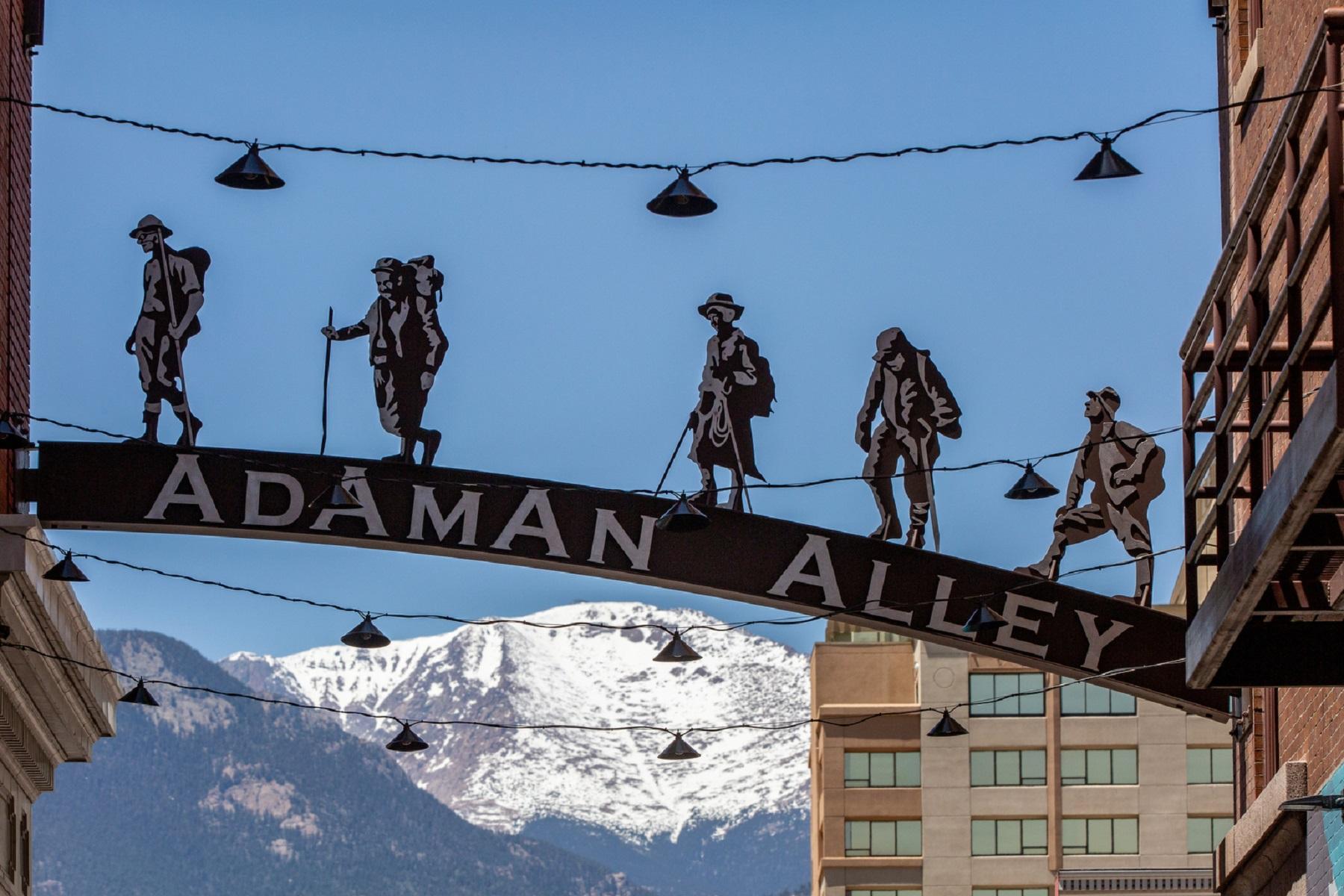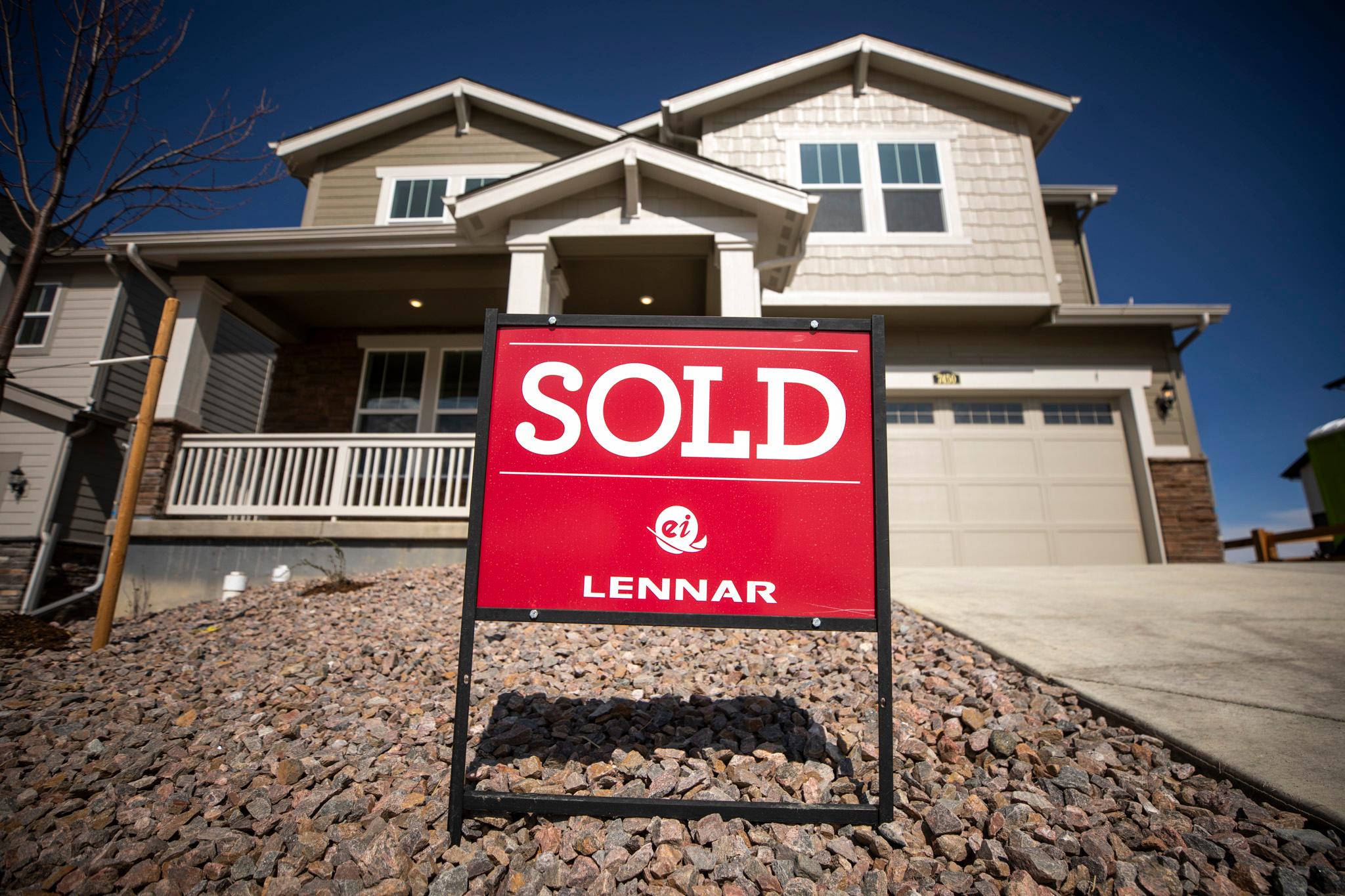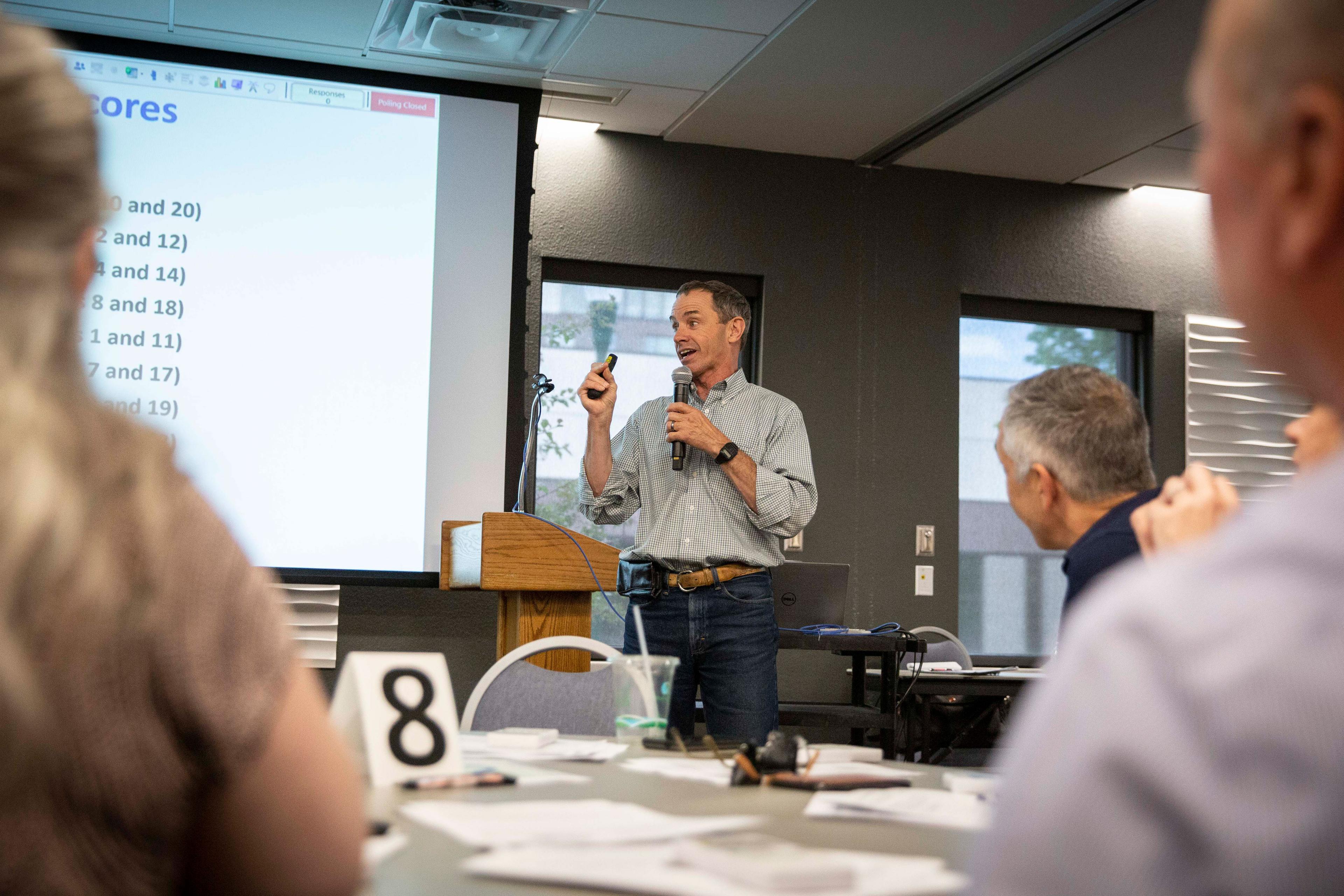
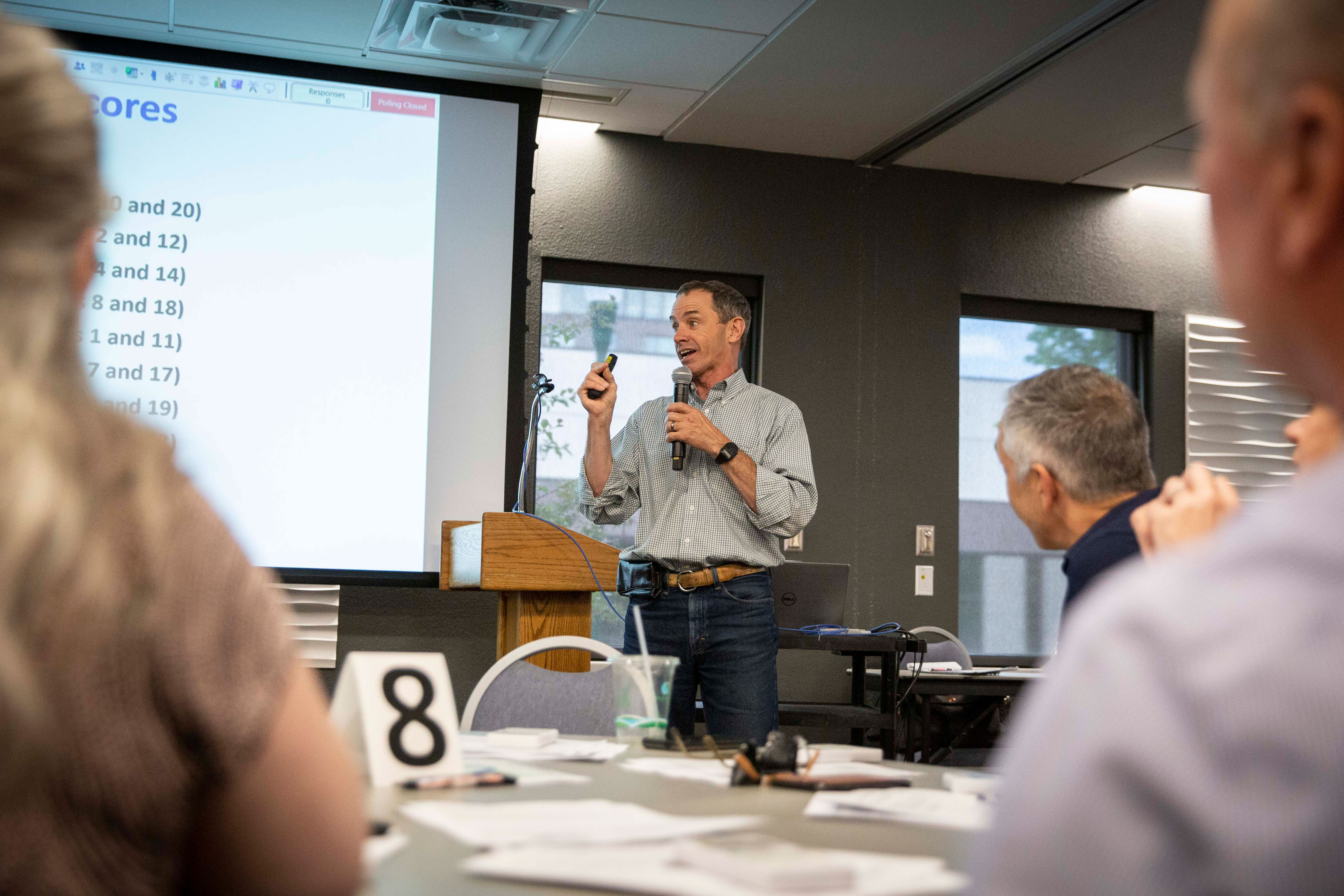
For months, small groups around Colorado have tackled one of the thorniest questions facing state government: what to do about its convoluted funding model.
A nonpartisan, nonprofit group backed by the state's biggest foundations has been hosting dozens of conversations on the topic. It’s part of what it says is an effort to start a dialogue about a policy that some say prevents adequate funding for basic government services.
Building a Better Colorado was founded in 2015 with the aim of finding common ground in Colorado’s shifting politics. The group has a track record of generating policy ideas that get bipartisan support: Three such concepts identified during the last round of meetings in 2015 made it onto the ballot — and passed.
So it’s notable that the group has shifted its focus to state revenues, an issue of rising tension. Voters will decide in November on a ballot measure referred by Democratic lawmakers last session that would tweak the current system to allow the state to pour more resources into education and transportation.
At each meeting, attendees hear short presentations about the three most consequential amendments to the state constitution:
- Amendment 23, which mandates the state spend more on K-12 education every year but doesn't actually raise revenue for it.
- The Gallagher Amendment, which keeps residential property taxes low.
- The Taxpayer's Bill of Rights, or TABOR. This requires every tax increase be approved by a vote of the people, and limits how much revenue the state and some local governments can keep.
“We have overlaid these policies in our constitution with each other. And so they interact in ways that we never, never intended,” Reeves Brown, project manager for Building a Better Colorado, said at a meeting in Greeley earlier this month.
The prime example of that, Brown said, is how Gallagher lowers property tax assessment rates, and TABOR prevents them from floating back up. The upshot is a decrease in revenue for local governments and school districts. (While some voters may not have anticipated that consequence, TABOR’s architect, Douglas Bruce, told CPR News in 2017 that wrote his measure specifically to have that effect.) Still, Brown said the message he’s sending to participants is not that they need to change any policies.
“Our message to people is be aware of how they are affecting your quality of life, because they are affecting your quality of life,” he said.

A State, Divided
The goal of Building a Better Colorado is to bridge political and geographic divides, founder Dan Ritchie said. Rural leaders especially need to be heard.
“I believe that people around the state who are at the local level and responsible for the local economy ... did not have the voice that they needed,” Ritchie said from his office at the University of Denver, where he was chancellor for 16 years.
Enter The Taxman: The Inside History Of How TABOR Conquered Colorado
The group’s 2015 meetings resulted in three ideas that separate organizations then turned into successful ballot measures the next year. Amendment 71 made it harder for future amendments to get on the ballot and into the state constitution; Proposition 107 restored a presidential primary; and Proposition 108 allowed unaffiliated voters to participate in primary elections.
The key to Building a Better Colorado’s method comes in deciding who should be at each of these meetings. In each city, Brown will invite the mayor, school superintendent, chamber of commerce leader, and other high-profile leaders. Those people then decide who else should be invited. The result in Greeley was a room of about 60 well-connected citizens.
“There's a good cross section and a good number of people here that their heart are in representing the community as a whole,” said Tom Norton, a former Republican state senator and mayor of Greeley.
Mike Roque, executive director of the Community Foundation of the San Luis Valley, attended a BBCO meeting in Alamosa this spring. He said the valley was represented well.
"We had ranchers, farmers, we had people from the nonprofit sector, the government sector,” he said. “And not that everyone agreed, but I think there was some consensus around the issues."

Nonpartisan, But Not Public
The meetings BBCO hosts are purposefully not open to the public. Brown said they try to include only “constructive” voices.
“Lyndon Johnson, I've read once, said that it takes a carpenter to build a barn, but any jackass can kick it down,” he said. “And I tell people we're looking for carpenters.”
That concerns TABOR supporters like Natalie Menten, who said Building a Better Colorado’s methods don’t find a true consensus. She’s been aware of Building a Better Colorado since they started.
“It was a staged production,” said Menten, who’s also a Regional Transportation District board member. “It was set up to generate certain responses. And I attended some meetings — more than one — and although other initiatives came out of it, I believe one of the main goals of the organization is to dismantle the Taxpayer’s Bill of Rights.”
Menten said the divide over whether to overhaul TABOR isn’t partisan. Instead, it’s about political insiders from both parties versus political outsiders — and that TABOR is there to protect people on the outside of the state’s power structures.

BBCO Effort Coincides With Legislature’s Own Ballot Measure
Last session, the Democratic majority in the state legislature referred a measure to the 2019 ballot that would allow the state to keep the money it would otherwise have to return to taxpayers. Brown said he’s aware of the legislature’s ballot measure but has no connection to it.
The legislature’s measure, Proposition CC, received just one Republican vote in either state chamber in support, from Sen. Kevin Priola. But data Building a Better Colorado has collected through its meetings shows that some local Republicans support making changes to TABOR along the lines of what the legislature's ballot measure would do.
There is a precedent for Republican support of measures to weaken TABOR. In 2005, for example, then-Gov. Bill Owens campaigned for Referendum C, a successful measure that allowed the state to retain more revenue. That, however, was extremely divisive among Republicans.



